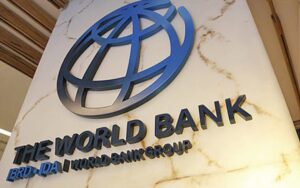
Ukraine will receive $88 million in funding as part of the World Bank’s Resilient, Inclusive, and Environmentally Sustainable Entrepreneurship (RISE) project to support the private sector. The funds are provided under a guarantee from the Japanese government to the International Bank for Reconstruction and Development (IBRD).
“As a result of the conclusion of this agreement, it is planned to attract $80 million ($8 million – capitalization of interest on the loan, which will be used to pay a one-time commission and a commission for obligations) to the general fund of the state budget,” the Ministry of Finance said in a press release on Tuesday.
According to the press release, the loan agreement was signed by Ukraine’s Minister of Economy, Environment, and Agriculture Oleksiy Sobolev and the World Bank’s Regional Director for Eastern Europe Bob Som.
The RISE project aims to address critical issues that hinder the sustainability, growth, and sustainable development of the private sector. The project is scheduled to be implemented between 2024 and 2027. The total amount of funding for the implementation period is planned to exceed $1 billion, of which $593 million has been preliminarily allocated.
The Ministry of Finance also noted that the total budget assistance from Japan attracted through World Bank mechanisms since February 2022 has exceeded $8.7 billion.
RISE is a World Bank project implemented using the Program-for-Results (PforR) financial instrument. Part of PforR aims to review and support results in the following areas: improving the effectiveness of state support for SMEs with a focus on green competitiveness; improving the business environment and digital government services for businesses; ensuring SMEs’ access to export markets.
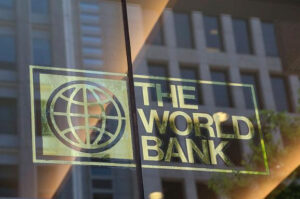
Ukraine and the International Bank for Reconstruction and Development have signed an agreement on a $246.5 million loan under the SURGE program “Supporting Recovery through Sound Fiscal Management,” the Ministry of Finance reported on Saturday.
“It is planned that by the end of 2025, $229.7 million will be allocated to the general fund of the state budget. Part of the loan, amounting to $16.8 million, will be used to capitalize interest in order to reduce the cost of servicing Ukraine’s credit obligations in the coming years,” the Ministry of Finance specified.
The project aims to support the Ukrainian government’s efforts to create an effective public investment management system in the context of post-war recovery and reconstruction, improve fiscal management at the local level, improve medium-term and program budgeting at the local level, and administer revenues, according to the release.
According to the release, the funds will be drawn from the Target Fund for Providing Ukraine with Necessary Credit Support (ADVANCE Ukraine), which is supported by the Japanese government. The agreement was signed by Finance Minister Serhiy Marchenko on behalf of Ukraine and Bob Som, Regional Director for Eastern Europe, on behalf of the World Bank.
The SURGE project has been implemented in Ukraine since 2024. During this time, the World Bank has signed agreements with Ukraine for $760 million in financing under the project, including $10 million in grant funds. It is being implemented using the Program-for-Results (PforR) financial instrument, which is based on the achievement of specific indicators linked to payments.
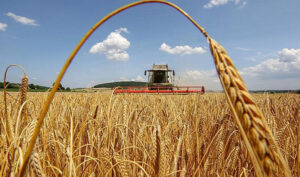
The Ministry of Agrarian Policy and Food and the World Bank plan to expand cooperation in the development of Ukraine’s agribusiness sector.
The agreement was reached following talks between Minister of Agrarian Policy and Food Vitaliy Koval and World Bank Managing Director for Operations Anna Bjerde, the ministry’s press service reported.
According to the report, the parties agreed to expand cooperation in three areas: preparing analytical data for decision-making in the agribusiness sector; institutional support for the Ministry of Agrarian Policy with a focus on integration into EU policies and standards; implementation of programs for more than 200,000 small and medium-sized farmers as the basis for Ukraine’s agricultural sustainability.
“Our goal is not only to preserve but also to transform Ukrainian agriculture in line with EU standards and opportunities. And the advocacy platform provided today by the World Bank team in Vienna is actually the key to faster and more successful European integration,” Koval emphasized.
In addition, during the meeting with World Bank representatives led by Regional Director for Sustainable Development in Europe and Central Asia Sameh Wahba, the possibility of deepening cooperation in the field of irrigation was discussed. In particular, they talked about restarting the irrigation system development plan to get help in more regions of Ukraine.

The World Bank (WB) Board of Directors has approved additional financing for Ukraine in the amount of $84 million for the HOPE project to rebuild housing damaged by Russian aggression, according to the website of the Ministry of Finance of Ukraine.
“Ukraine will receive $84 million in additional funding from the World Bank for the project “Housing Repair for the Restoration of People’s Rights and Opportunities (HOPE). The funds will be used to restore housing damaged by Russian aggression under the ‘eRecovery’ program,” the statement said.
It is noted that on May 15, an agreement on additional funding between Ukraine and the International Development Association was signed by Deputy Prime Minister for the Restoration of Ukraine – Minister of Community and Territorial Development Oleksiy Kuleba and World Bank Regional Director for Eastern Europe Bob Som.
The Ministry of Finance noted that the World Bank’s Board of Directors approved the decision on May 9.
It is expected that this funding will enable more than 25,000 households to repair their homes.
The NORE project aims to address urgent and critical needs for the repair of partially damaged individual and multi-family residential buildings in communities controlled by the Ukrainian government that have been affected by the Russian Federation’s aggression.
As reported on April 18, Ukraine will get $84 million from the World Bank as part of the HOPE project. The Cabinet of Ministers made this decision on April 18.
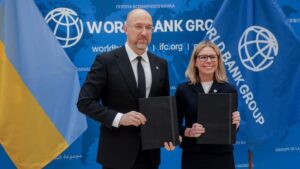
The World Bank will provide Ukraine with $70 million in grant funding to support the stability of the national energy system, according to a statement posted on Ukrainian Prime Minister Denys Shmyhal’s Telegram channel on Friday.
“The agreement was signed on Thursday in Washington with World Bank Managing Director Anna Bjerde,” the statement said.
The funds will be used to purchase energy storage systems for the company Ukrhydroenergo. This will allow the creation of electricity reserves and strengthen the country’s energy security.
“We thank the World Bank and all partners for their support to Ukraine’s energy sector, which has suffered significant damage as a result of Russian attacks,” Shmyhal wrote.
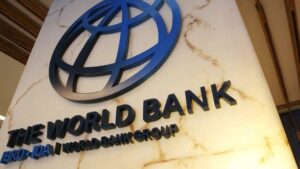
Ukraine has received $50m from the World Bank under the health care project “Transforming Health Care through Reform and Investing in Efficiency” (THRIVE), the Finance Ministry has said. It noted that the condition for receiving these funds was to raise the level of the capital rate of primary health care (payment for care of one patient who filed a declaration on the choice of a doctor who provides primary health care) to a minimum of 825 UAH, and according to the government decision of December 2024, such rate for 2025 is 844.4 UAH instead of 786.65 UAH in 2024.
THRIVE is one of the projects implemented using the financial instrument “Program for Results” (PforR), which provides for the achievement of indicators, upon verification of which Ukraine will attract funds determined by the relevant agreements, said the Ministry of Finance.
The purpose of the project is to assist the government in improving the Medical Guarantee Program (MGP) to create a reliable health care system. The Loan Agreement and Financing Agreement totaling $449 million were signed on December 10, 2024, of which $249 million was provided by Japan. Last year, Ukraine has already received $220 million, which is stipulated in the Loan Agreement (100% of the disbursed funds).